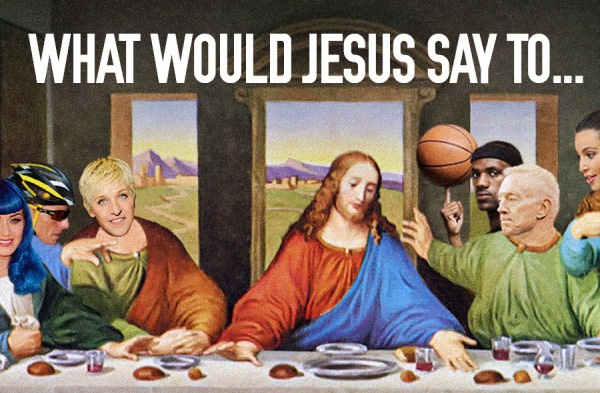THE Scientific Method is a Misunderstanding
Elementary school science class taught me a basis outline of “the scientific method”. I do not recall the specifics but what has stuck with me is the overall flow of: hypothesis, test, measure, and conclusion. Recently I was informed that “the scientific method” is incorrect. Not the method, but the idea that there is THE (or just one) scientific method. Different sciences have different methods.
For instance physics has a method that works for Newtonian physics but quantum physics is more theoretical than material. Biologist have the benefit of knowing the results of their hypothesis much quicker than geologists who have to have a different method while waiting eons for rocks to move. The sciences have methods that make sense in their field but might not make any sense in another field.
Of course, these different methods are neither better nor worse than one another. While these methods are different in their specifics, in a general sense these different methods are unified in their efforts to better understand the mysteries of the world.
These different methods also contribute to a humility among the most respected scientist. A zoologist does not over reach into the field of astronomy in order to correct or condemn. The zoologist knows there are limits to her field and her understanding and those same limits exist in the astronomist. Each field respects the methods of the other fields. There is no attempt to prove the superiority of one fields methods over another. Criticism comes from within the same field - chemists argue with chemists.
For as much as religion has to teach the sciences, I wonder if religion has something to learn from science.
Religion Bounces Back in the Age of Novelty?
Alain De Botton's book points out that religion have at their core a sense of repetition. Be it annual feast days, repetition of the same story, recreating a previous event or common rote prayers, patterns abound in religion. In part the reason for all this repetition is due to a commonly held belief among religious types - human beings are forgetful.
This repetitive nature of religion can contribute to the feeling that religion is boring. As my high school english teacher, Mr. Ott, often quoted the Russian quip, "Repetition is the mother of learning and the father of boredom." In an effort to not be boring but instead to be fresh and new and exciting, many Christian churches have adopted a "TED" style of worship: Keep it novel every time.
There is a fear among the Christian leaders that I know that if we are not sharing something each week that is new or groundbreaking or at least something that someone did not know before then we are failing. This pressure leads to some seriously cheesy sermon series all in an attempt to be novel.



However I wonder if it is possible that because we are in an age of novelty that religion will see more people interested in it. As the non-fig based cookie man, Newton said, "Every action has an opposite and equal reaction."
We are constantly hammered with the "new" and the "latest" and the "breaking" the "update" that we become overwhelmed by all that we don't know. My list of books that I want to read grows four times as fast as the list of books that I have read. To which Botton states:
"We feel guilty for all that we have not yet read, but overlook how much better read we already are than Augustine or Dante, thereby ignoring that our problem lies squarely with our manner of absorption rather than with the extent of our consumption."
Part of the beauty of religion is that if forces us to return to the same stories and messages and ideas time and time again. Christianity forces me every year to ask the question, "What the hell is happening on that cross?" and "If you cannot believe that there is a divine spark in Jesus then how will you ever believe that there is divinity in you?"
Just as the new minimalism may be a reaction to the overconsumption that defined the baby boomers, so too could religion's repetition be a reaction to the Age of Novelty?
Christian Life is not Weather Control
Too often the religious life is seen as a superstitious life. The religious person prays to a deity in order to affect the world around. The individual, through a series of rituals or incantations, entices the gods to sway the fortunes and manipulate an outcome to the desires of the individual. The mature follower of Jesus knows that prayer is less about changing God and more about changing the self, but nonetheless prayer is seen by some as nothing more than vain attempts to change the future.
Christianity teaches a way of life that is aware we cannot control the storms around us. We cannot control much in the world and there are so many things that are beyond our influence. Christianity knows that storms will come, no matter what we do, and we cannot control them. We cannot make it stop raining. We can only learn to live through the storm.
Christianity teaches a way of life that does not seek to control the storms but to give people a solid foundation to stand on when the storms come. Christianity is a way of life that weathers the storms not eliminates them. Eliminating the storms is a dream of utopians, weathering storms is the hope of Christians.
Perhaps this is why many are disinterested in Christianity. Christianity has been taught as a way to eliminate the storms by just doing the right things (the right prayer, right profession, etc.). Additionally, people have tried weather-controlling Christianity and seen that it does not work - the storms still come. Can we build churches less focused on controlling and more on standing firm when the rains begin to fall.

Be the change by Jason Valendy is licensed under a Creative Commons Attribution-NonCommercial-ShareAlike 3.0 Unported License.














